My favourite tofu
And the question of whether soy is healthy or not
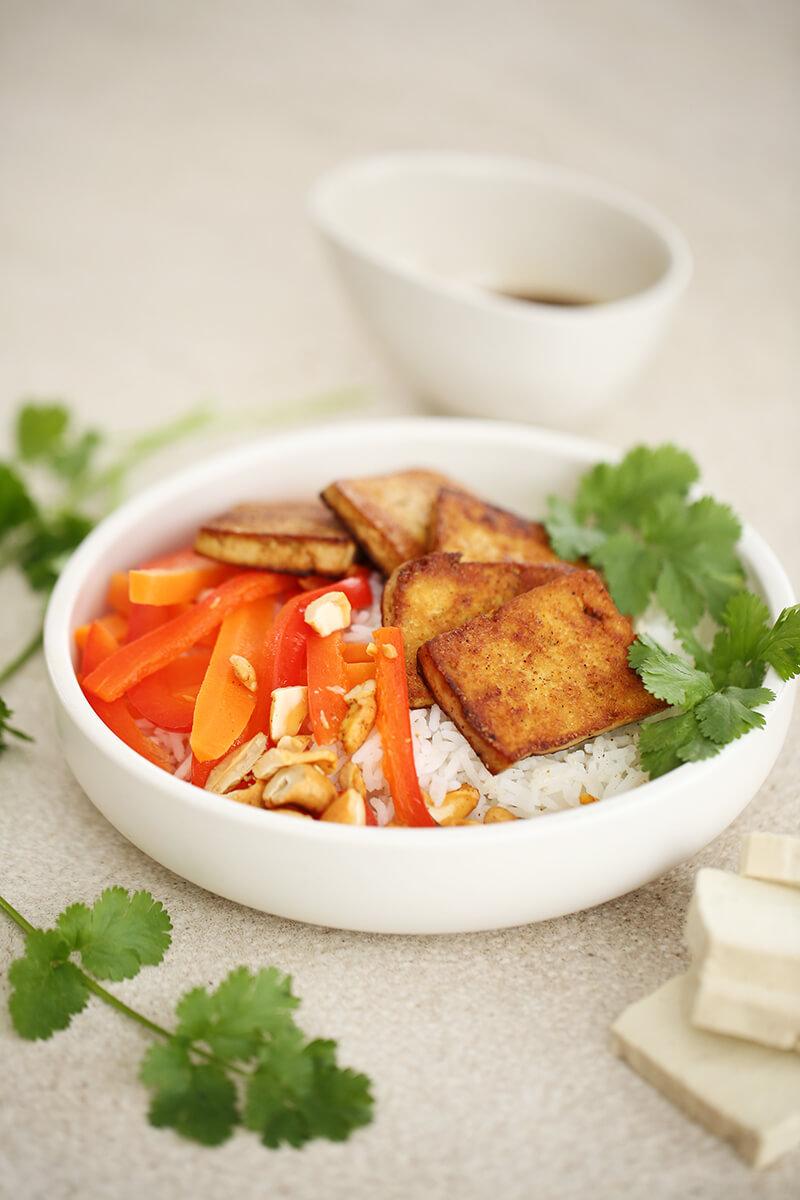
From time to time I really like to eat tofu. For my taste, however, it has to be prepared in a very special way, otherwise I just find it boring. And you really don’t have to eat boring things, do you? In general, tofu divides society into two camps: those who love it and those who hate it. But even those who love it are wondering, whether the tofu might be harmful to their health. Interestingly, tofu consumption is not such a contentious issue in Asian countries, where it ultimately comes from and where it is eaten much more often. It’s just eaten from time to time and that’s it. And that would be my tip if anyone wants simple advice about tofu: eat it, but in moderate amounts and always organic.
There is of course a more detailed answer…
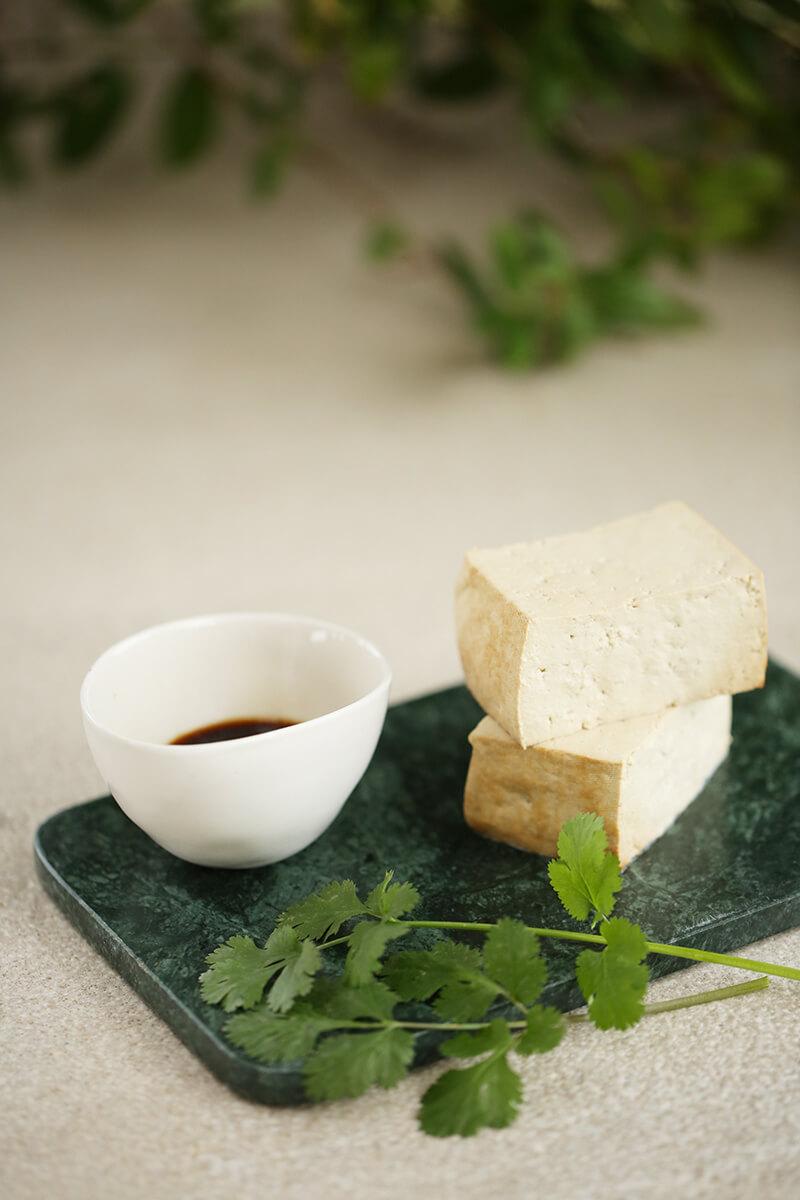
What is tofu anyway?
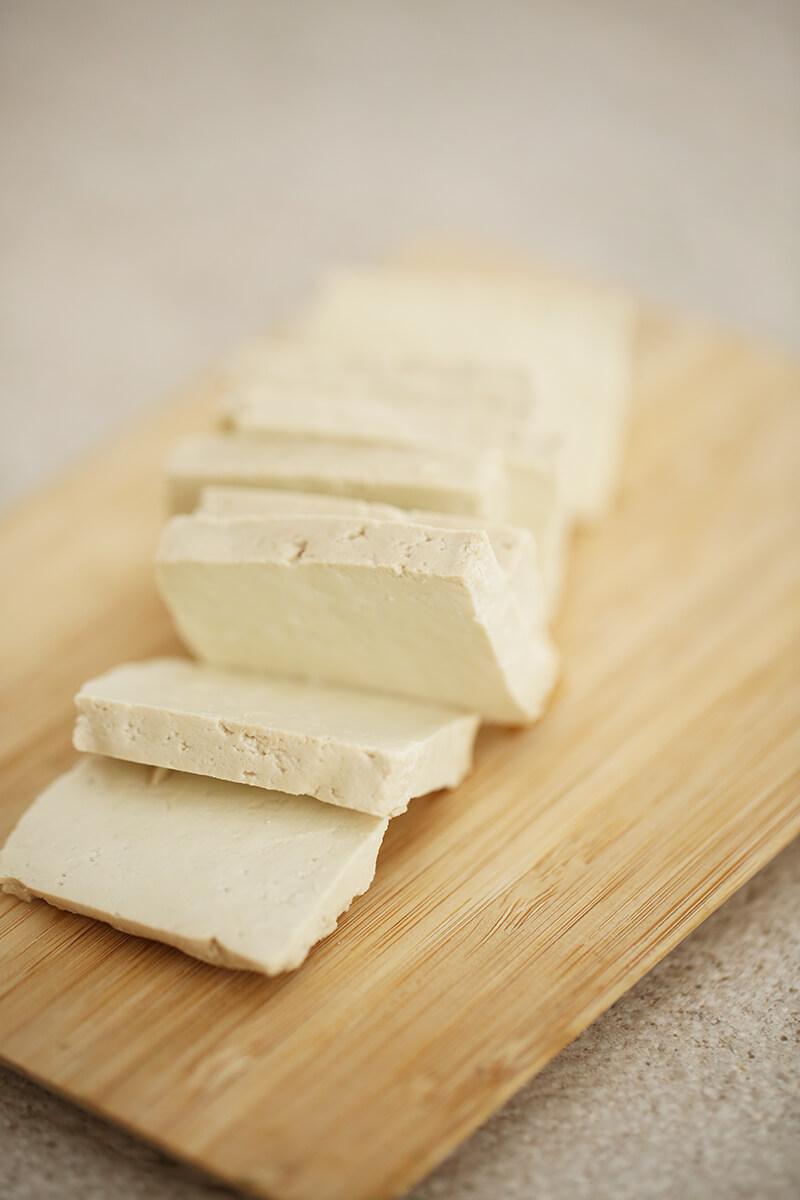
Is tofu harmful?
Most of the studies that certify tofu as harmful are carried out with people who ate lots of soy products, for example infants who were mainly fed with soy infant formula, and with people who took high doses of isolated soy isoflavones over a long period of time. Nowhere in the studies is there talk of people who regularly eat some tofu or drink soy milk. Incidentally, I consider it a “disease” of our modern world that studies are made with isolated substances in unnaturally high doses which are used to draw conclusions about whole foods, that in reality have a totally different effect on the body.

Soy products are often accused of promoting the development of breast cancer. The University of Illinois conducted a study in 2015 and found out that minimally processed soy products suppress breast cancer, while isoflavones isolated from soybeans stimulate tumor growth.

The active ingredients in soy – the isoflavones
Interestingly, it is the isoflavones in soy that have a particularly positive health effect. They belong to the group of secondary plant substances and have an antioxidant, anti-inflammatory and preventive effect against cancer. Incidentally, it is also the isoflavones that give the soy a weak estrogen-like effect (although 100 to 1000 times weaker than endogenous estrogen or pharmaceutical estrogen). Isoflavones can therefore influence the hormonal balance and can reduce the risk of developing hormone-dependent cancers such as breast, uterine or prostate cancer.However, the positive effect of isoflavones can change completely and have the opposite effect if they are chemically isolated and administered over a longer period of time. This fact is recently being raised by scientists, who explain that a whole food contains many substances that work synergistically with each other, so that they have more health benefits than an isolated substance (no way! ;- ).
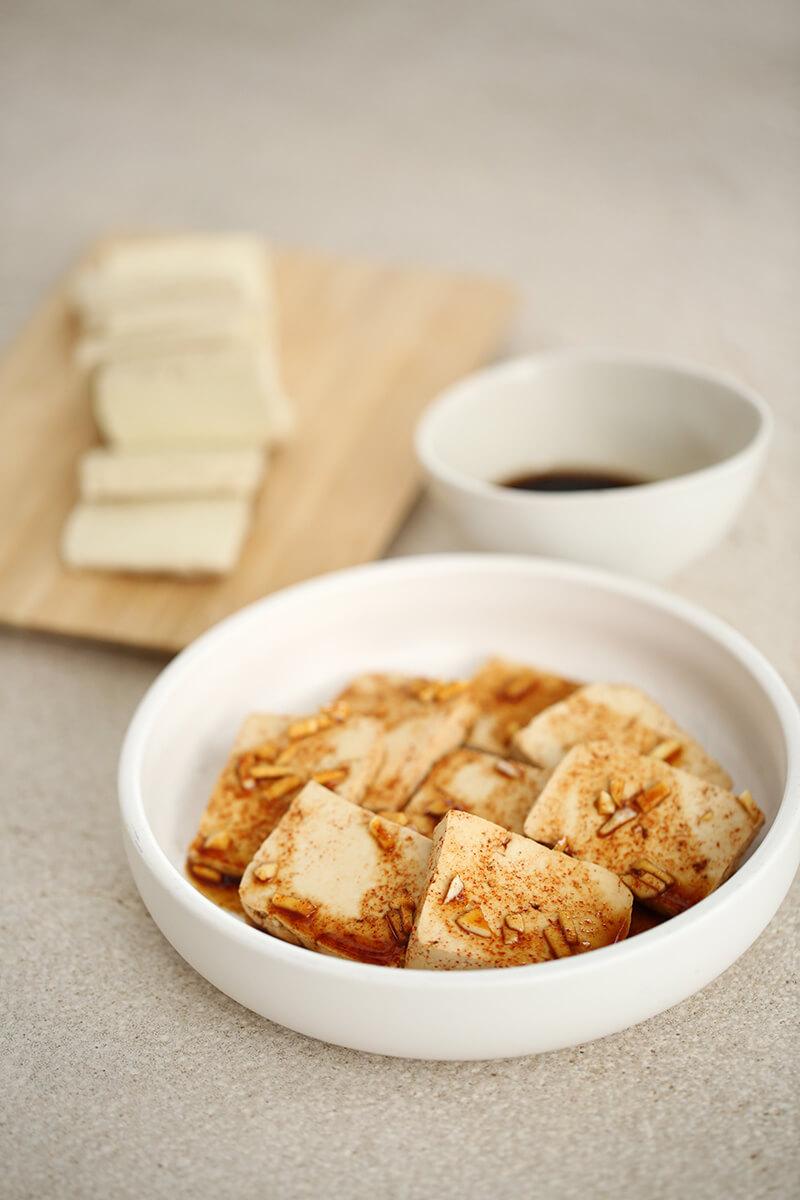
My recipe of the week
Tofu can be prepared and eaten in many different ways. Personally, I use it most often as an accompaniment to an Asian rice dish with vegetables. I like my tofu with a meaty umami flavour. For this purpose, I prefer to use smoked tofu which I marinate in an Asian barbecue sauce and fry afterwards. Even people who otherwise never care about eating tofu are usually enthusiastic about this method of preparation.
And now my question to you: Do you already like tofu or not yet? I look forward to your comment below!
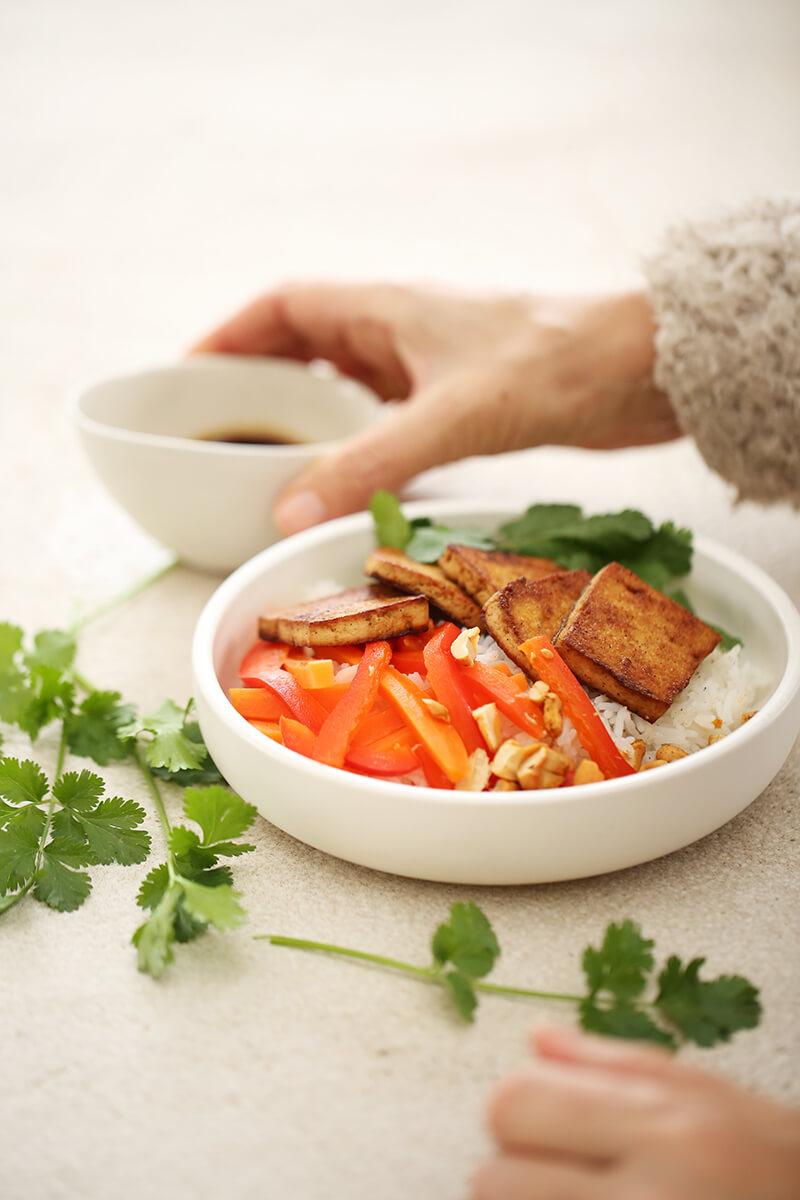
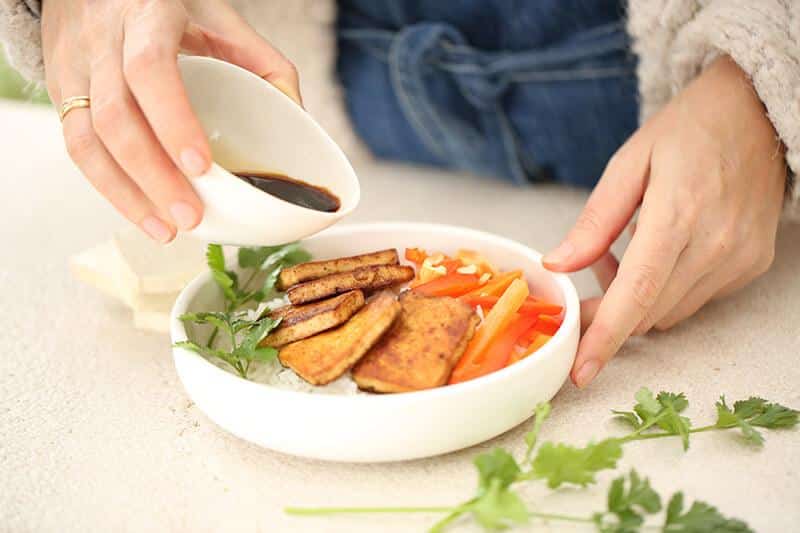
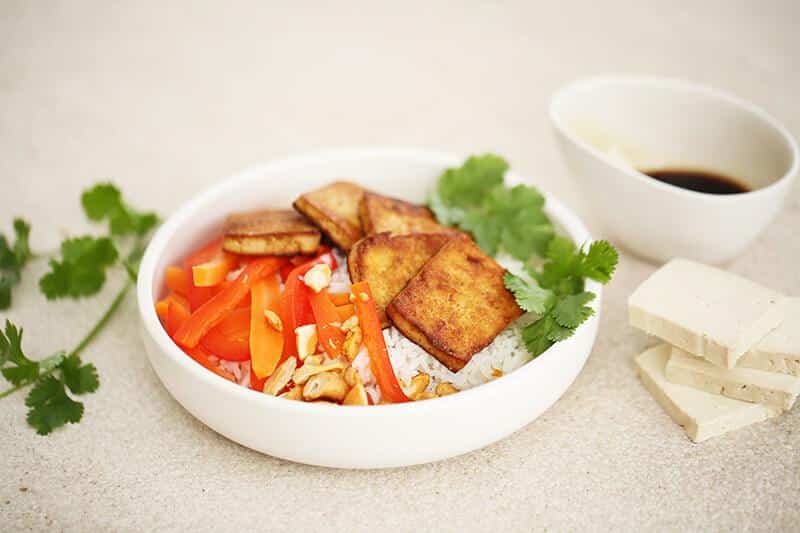
My favourite tofu
Ingredients
- 2 tbsp soy sauce optionally gluten free
- 1/2 tbsp maple syrup grade A or C
- 1 clove of garlic peeled and diced
- 1/2 tsp toasted paprika powder
- a few dashes of Tabasco alternatively: some chili or cayenne pepper
- 200 g organic smoked tofu cut into slices about 8 mm thick
- some coconut oil for frying
Instructions
- In a bowl, stir together the soy sauce, maple syrup, garlic, smoked paprika, and Tabasco. Add the sliced tofu and marinate all over.
- Heat a pan with some coconut oil. Fry the marinated tofu on all sides until browned and slightly crispy. Be careful not to burn it! Finally, add the rest of the marinade to the pan.
- Serve directly.
Wellcuisine-Tipp

